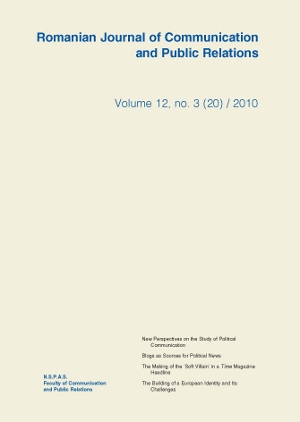Innovations in the Organization of the Romanian Higher Education: Project-Oriented University
Innovations in the Organization of the Romanian Higher Education: Project-Oriented University
Author(s): Elena Negrea, Loredana Calinescu, Sergiu Stan, Alina BargaoanuSubject(s): Social Sciences
Published by: Editura Comunicare.ro
Keywords: Project-oriented university; organisational strategy; project management maturity; project management culture
Summary/Abstract: The purpose of this paper is to explain the concept of project-oriented university as a new type of university that embraces project management as an explicit organizational strategy, thus enabling it to survive and thrive under circumstances of complexity and constant change. This concept has not been used in connection to higher education so far, which still operates with distinctions between humboldtian and entrepreneurial universities. It is premised on the idea that there is a connection between a university’s maturity in project management and its innovativeness. The concept inherits the solid conceptual core of a fully-fledged model of an organization in terms of project management maturity (i.e. project-oriented organization). This substantially contributes to its operationalization into a model for universities as particular type of organizations. The model comprises two components: the former oriented towards the structural dimensions of project management (“the hard” component – processes, procedures, organizational structures) and the latter oriented towards the social dimension of project management (skills, attitudes, competences – the so called “soft” component). Research will focus on three Romanian universities and will explore both dimensions. In exploring the former dimension, research will check whether project management is an explicit organizational strategy of the studied universities, applied both to internally or externally-funded projects; whether project management and program management processes are formalized and documented into working procedures; whether a Project Management Office is in place, which is responsible for the coordination of all running projects; whether project management expert pools exist; whether a common project management terminology is used across the organization. Research dedicated to the second component will examine the consistency of project management culture across the entire university, the career and personal development paths in project management and the climate for continuous improvement of project management methodology. Empirical results will offer the basis for assessing the potential of the project-oriented university model to create the framework for universities to develop, innovate, and be competitive on the global education market.
Journal: Revista Română de Comunicare şi Relaţii Publice
- Issue Year: XII/2010
- Issue No: 3
- Page Range: 119-134
- Page Count: 16
- Language: English

